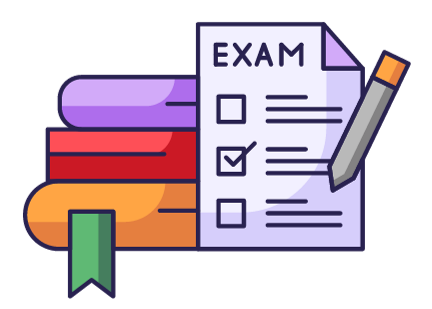Estimated reading time: 6 minutes
Embarking on the Pearson Test of English (PTE) journey? Just as important as mastering the English language is understanding the nuances of the test day. From what to bring to the exam centre to managing last-minute jitters, this guide will arm you with everything you need for a smooth PTE experience.
PTE Exam Overview
Firstly, let’s demystify what the PTE exam really is. The Pearson Test of English is a computer-based English language test that assesses your reading, writing, listening, and speaking abilities. Its results are widely accepted by universities, employers, and immigration authorities worldwide. The PTE Academic validity? It’s typically valid for two years. And the PTE code you might have heard of? It’s a unique code assigned to you, ensuring your scores are sent to the institutions you choose.

Booking and Logging In
You’ve decided to take the plunge. Great! Booking the PTE exam is a straightforward online process. But what about test day login? Once at the test centre, you’ll use your provided PTE login details. It’s imperative to keep these details safe to avoid any hiccups. Should you face any login issues, the PTE login help at the test centre is always available to guide you through.
PTE Test Day Essentials
Turning up at the exam centre empty-handed? Think again. Ensure you bring along valid ID (typically a passport or national identity card). Punctuality is paramount; arriving late could mean being turned away. As for those test day nerves? You’re not alone. Deep breathing and mindfulness exercises can be your secret weapons against anxiety.
What to Expect on PTE Test Day
Upon arrival, you’ll go through a check-in process, including having your photograph taken and digital fingerprints scanned. No, it’s not a James Bond movie set—it’s just standard procedure! Then comes the main event: the PTE test itself. You’ll tackle sections ranging from speaking and writing (combined) to reading and listening. The environment? Think silent rooms, computer terminals, and fellow test-takers immersed in the task at hand.

How to Prepare for PTE Test Day
Preparation is more than just studying; it’s about mental readiness. Here’s a quick PTE exam day preparation checklist:
- Revise your notes: A quick glance at key points can refresh your memory.
- Stay hydrated and well-fed: A balanced meal ensures your brain is fuelled.
- Rest well: A good night’s sleep is non-negotiable.
- Plan your route: Know the test centre’s location and how you’ll get there.
- Time management: Familiarise yourself with each section’s timing and practice keeping to it.
- Mock tests: Take full-length scored practice tests to simulate the real experience and find our areas of improvement.
With the right preparation and mindset, the PTE test day can be less daunting and more of a chance to showcase your English prowess. Remember, it’s not just about the language; it’s about the journey and how well-equipped you are for it.
Strategies for Effective Time Management During the Test
Effective time management can be the difference between a stressful test experience and a smooth one. With the clock ticking, every moment counts, and ensuring you use that time wisely is crucial. Here’s how:
- Familiarise Yourself with the Test Structure: Before the exam, understand the PTE’s format. Knowing how much time you have for each section allows you to allocate it more effectively.
- Set Mini Deadlines: Break down the allocated time for each section. For instance, if you have 20 minutes for reading and ten questions, try to spend no more than 2 minutes on each.
- Prioritise Questions: While it’s essential to attempt all questions, start with those you’re most comfortable with. This not only boosts confidence but ensures you secure marks in areas of strength.
- Stay Calm and Keep an Eye on the Clock: Continually checking the time can be distracting. Instead, glance at the clock occasionally to gauge your progress. Remember, staying calm can help you think more clearly and quickly.
Tips for Improving Performance in Each PTE Section
Speaking & Writing:
- Practice Speaking Out Loud: This might sound basic, but regularly speaking English out loud can drastically improve fluency.
- Use Templates: Having a basic structure in mind for essays can save time and provide a clear writing direction.
- Stay Updated: Current affairs topics are common in this section. Regularly reading news articles or listening to podcasts can help.
Reading:
- Skimming and Scanning: Don’t read every word. Skim for the general idea and scan for specific details.
- Expand Vocabulary: The broader your vocabulary, the easier it is to understand varied texts. Use flashcards or apps to learn new words daily.
Listening:
- Diverse Listening Practice: Regularly listen to English from various sources – news, podcasts, movies. This helps familiarise yourself with different accents and speech speeds.
- Note-Taking: Develop a shorthand system to quickly jot down crucial points during the listening section.
Remember, while these strategies are a great starting point, the most significant improvement comes with consistent practice and learning from mistakes. Every mock test, every practice session brings you one step closer to PTE success.
Key Takeaways:
- Understand the structure and purpose of the PTE exam.
- Ensure you have all essentials for the test day.
- Familiarise yourself with the test centre’s environment and procedures.
- Prepare both mentally and academically.
- Use available resources, such as mock tests, for effective preparation.
Similar Blogs
Learning lessons, study tips, career guides and much more!
The Importance of Time Management in the PTE Exam
Time is an essence, and when you’re sitting for the PTE (Pearson Test of English) exam, every second counts. Effective…
Listening Skills for PTE: How to Excel in the Listening
If you are reading this blog, you have likely heard of the Pearson Test of English (PTE) Academic. It is…
PTE Speaking Section: Strategies for Fluency and Pronunciation
Embarking on your PTE journey? You must be aware of its different sections. Today, let us zero in on the…
Overcoming Test Anxiety: Tips for a Stress-Free PTE Experience
Exams can be daunting, can’t they? Test anxiety is a common psychological phenomenon affecting individuals preparing for it, especially during…
Common PTE Mistakes and How to Avoid Them
For many candidates worldwide, the Pearson Test of English (PTE) bridges global opportunities – higher education, immigration, or professional avenues….
Crack the PTE Read Aloud Challenge: Pro Tips for a
The Reading Test in PTE is crucial to gaining an exceptional score. And to ensure this, you must do well…
Frequently Asked Questions
On the test day, you’ll first go through a check-in process at the PTE exam center. This involves showing your ID, having your photograph taken, and providing digital fingerprints. After this, you’ll be directed to a computer terminal in a quiet room. You’ll then follow on-screen instructions to begin the test, with sections covering speaking, writing, reading, and listening.
The PTE code is a unique identifier assigned to each candidate taking the PTE exam. This code ensures that your test scores are sent accurately and securely to the institutions you’ve chosen. It acts as a reference for any future queries or processes related to your PTE exam.
PTE Academic scores are typically valid for two years from the date of the exam. Once your scores are available, you can send them to an unlimited number of institutions through the PTE system without any additional charge. However, it’s always good practice to check the specific score acceptance policies of institutions or bodies you’re interested in, as they might have their own criteria.
You must bring a valid identification document, usually a passport or a national identity card, which has your photo and signature. Make sure that the name on your ID matches the name you used during the PTE registration. Apart from that, personal items are typically stored away, so it’s advisable to bring only essentials to the test center.
Engaging in regular practice using official PTE materials is crucial. Additionally, immerse yourself in English by reading, listening to podcasts, or watching English programs. Joining a PTE study group or taking preparatory courses can also be beneficial.
No, the PTE Academic does not deduct marks for incorrect answers. Hence, it’s advisable to attempt every question rather than leaving any blank.
Yes, you’ll be provided with an erasable noteboard and a pen to take notes during the test, especially useful for the listening and reading sections.







